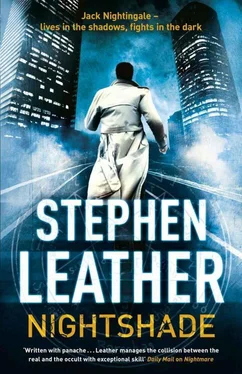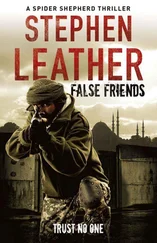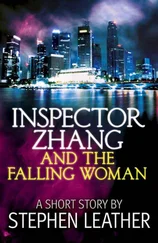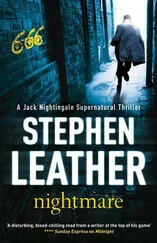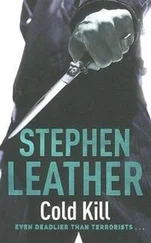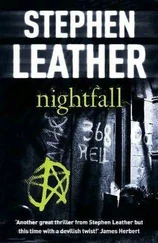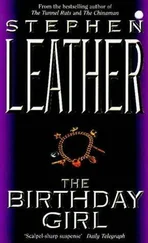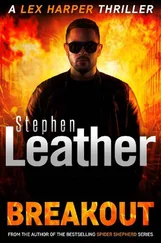Stephen Leather - Nightshade
Здесь есть возможность читать онлайн «Stephen Leather - Nightshade» весь текст электронной книги совершенно бесплатно (целиком полную версию без сокращений). В некоторых случаях можно слушать аудио, скачать через торрент в формате fb2 и присутствует краткое содержание. Год выпуска: 2013, Издательство: Hodder & Stoughton, Жанр: Триллер, на английском языке. Описание произведения, (предисловие) а так же отзывы посетителей доступны на портале библиотеки ЛибКат.
- Название:Nightshade
- Автор:
- Издательство:Hodder & Stoughton
- Жанр:
- Год:2013
- ISBN:нет данных
- Рейтинг книги:4 / 5. Голосов: 1
-
Избранное:Добавить в избранное
- Отзывы:
-
Ваша оценка:
- 80
- 1
- 2
- 3
- 4
- 5
Nightshade: краткое содержание, описание и аннотация
Предлагаем к чтению аннотацию, описание, краткое содержание или предисловие (зависит от того, что написал сам автор книги «Nightshade»). Если вы не нашли необходимую информацию о книге — напишите в комментариях, мы постараемся отыскать её.
Nightshade — читать онлайн бесплатно полную книгу (весь текст) целиком
Ниже представлен текст книги, разбитый по страницам. Система сохранения места последней прочитанной страницы, позволяет с удобством читать онлайн бесплатно книгу «Nightshade», без необходимости каждый раз заново искать на чём Вы остановились. Поставьте закладку, и сможете в любой момент перейти на страницу, на которой закончили чтение.
Интервал:
Закладка:
The front door remained resolutely closed. From where he was standing he could see that the barn door was ajar. He jogged over, his Hush Puppies splashing through puddles, and squeezed through the gap. Rain was beating a tattoo on the corrugated iron roof. ‘Mr McBride, are you in here?’ he called.
Water dripped down the back of his neck and he shivered. As he looked to the left his breath caught in his throat. Danny McBride was hanging from the upper level, a thick rope around his neck.
Nightingale took a step back, his eyes open in horror. It didn’t make any sense. McBride wasn’t the type to kill himself. He was a husband and a father and there had been nothing about his behaviour that suggested he was depressed. He was upset about what his brother had done, but that was no reason for him to take his own life.
He’d been hanging there for a while, Nightingale realised. Hours, probably. His trousers were wet and there was a small pool of urine on the floor. The bladder always emptied itself on death. And so did the colon. Nightingale had attended several suicides when he was a police officer and the smell of death was always the same. Urine and faeces. The intestinal gases as they expanded and escaped, and finally rotting flesh. Nightingale shuddered. ‘Shit, shit, shit,’ he muttered under his breath. He took out a cigarette and lit it as he considered his options. He could get back into his car and drive to the airport without telling anyone about the body. Or he could be the dutiful citizen and phone the police. But if he did that he’d have to face Stevenson again and have to explain what he was doing on the farm. And he guessed that Stevenson would relish any excuse to have Nightingale in a cell wearing a paper suit for a day or two.
Nightingale blew smoke up at the roof of the barn. If he drove away without reporting the death and the cops discovered that he’d been in the barn, he’d be in trouble. Not prison trouble, but helping the police with their enquiries trouble. And he’d probably need a lawyer.
But there’d be no evidence that he’d been in the barn and seen the body. There were the phone calls, of course. The call he’d made at Heathrow and the message on McBride’s phone. He could get around that, though, and phone again saying that he wouldn’t be able to meet McBride that afternoon. That might work. But he’d have to make the call well away from the farm.
Then there was his family. They deserved to be told. Somewhere there was a wife carrying on as normal, totally unaware that her husband was dead. And two boys who had to be told that their father was gone for ever.
He looked around the barn. Everything seemed exactly as it had been the last time he had been there. Except for the body, of course. He took a long drag on the cigarette and held the smoke for a good ten seconds before letting it out in a tight plume. He’d made up his mind.
42
John Fraser looked at his watch. It was six o’clock in the morning, which meant he had two hours to go before his shift ended and he could go home. The graveyard shift they called it, but that was actually a misnomer. It was quite rare for a patient to die in the ICU at night. Most died in the daytime, and the joke among the nursing staff was that the number of deaths rose in line with the number of doctors in attendance. Fraser knew that was a fallacy, too. Patients in the ICU were at their most stable when they slept, because then the body was able to get on with healing, or least keeping itself stable. During the daytime, with all the lights and the noise, stress levels increased and with stress came an increased risk of death.
Fraser had asked for the transfer to the ICU but was starting to have second thoughts. He had assumed the medical staff there would be making life and death decisions and that those decisions would save lives, that they would make a difference. But in the six months he had been there, he had realised the medical care actually had very little to do with whether the patients lived or died. They came in, they were hooked up to machines that measured all their life signs, and they were monitored. Some patients got better and lived. Others got worse and died. But the medical staff tried equally hard with all the patients; they weren’t the ones choosing who lived and who died. It wasn’t a case of doing the right thing or the wrong thing — sometimes patients died no matter what the doctors did, and Fraser was finding it hard to come to terms with that. In almost any other job, the harder you worked the better the results. But not in the ICU. It didn’t matter how hard they tried, patients still died.
The money was good, and the work was challenging, but Fraser was already thinking about asking for a transfer back to a general ward.
Fraser was doing a walk-around of the various units, checking that the equipment was functioning properly, drips hadn’t been compromised and patients were as comfortable as they could be. He opened the door to Mrs Dawson’s room. She was in her sixties and had been involved in a bad car accident that had burst her spleen, broken her back in three places and punctured her lung. She’d been lucky, she’d been wearing a seatbelt, and an airbag had cushioned her against the worst of the impact. Her husband hadn’t been wearing his belt and the airbag in front of him had malfunctioned and he’d ended up under the rear wheels of the truck that had smashed into them. Her face was a black and blue mass of bruised tissue but she was breathing on her own, which was a good sign. Fraser checked her drip, then dabbed a paper towel at the dribble of saliva that was running from her open mouth to her pillow. She swallowed and then moaned softly. ‘Ron?’
Ron was her husband. Fraser tossed the paper towel into the bin and left the room. One of the unit’s doctors was walking slowly down the corridor, texting on a BlackBerry. He looked up and smiled when he saw Fraser. His name was Joe MacDonald and he was newly qualified and still eager to please. ‘Fraser, how’s everything?’
That was always the sign of a newly qualified doctor or an intern. They bothered to remember the names of the nurses because more often than not it was the nursing staff who pulled their nuts out of the fire. ‘All good, Doctor MacDonald.’
‘I’m going to have a lie-down. Give me a shout if you need me.’
‘No problem, Doctor MacDonald.’ MacDonald hurried down the corridor towards the windowless room that housed the camp bed where doctors could snatch a few hours’ sleep when they needed it. It was one of the inequalities of the medical hierarchy. Doctors could nap, but a nurse would be sacked for sleeping on duty. Not that Fraser wanted to be a doctor. He didn’t envy them their long hours, or the stress, or the decisions they had to make on an hourly basis. Fraser liked people, and he enjoyed helping them, and that’s what nurses did. He’d always wanted to be a nurse, ever since he’d been in hospital as a child to have his tonsils removed. His classmates had teased him and his parents hadn’t been keen on his choice of career, but Fraser had stuck with it and he couldn’t have been happier.
He opened the door to Isabella Harper’s room. The little girl was lying in her bed, looking up at the ceiling. She smiled when she saw him. She put her finger to her lips and went ‘shhhh’, then pointed at the chair at the end of her bed where her father was sleeping, his head resting on a pillow jammed against the wall. Bella’s parents took it in turns to stay overnight in her room. It was against the rules, but Bella was nine years old and after all she had been through it was generally agreed the parents could come and go as they pleased.
Fraser went over the bed. ‘Can’t sleep?’ he whispered.
Читать дальшеИнтервал:
Закладка:
Похожие книги на «Nightshade»
Представляем Вашему вниманию похожие книги на «Nightshade» списком для выбора. Мы отобрали схожую по названию и смыслу литературу в надежде предоставить читателям больше вариантов отыскать новые, интересные, ещё непрочитанные произведения.
Обсуждение, отзывы о книге «Nightshade» и просто собственные мнения читателей. Оставьте ваши комментарии, напишите, что Вы думаете о произведении, его смысле или главных героях. Укажите что конкретно понравилось, а что нет, и почему Вы так считаете.
